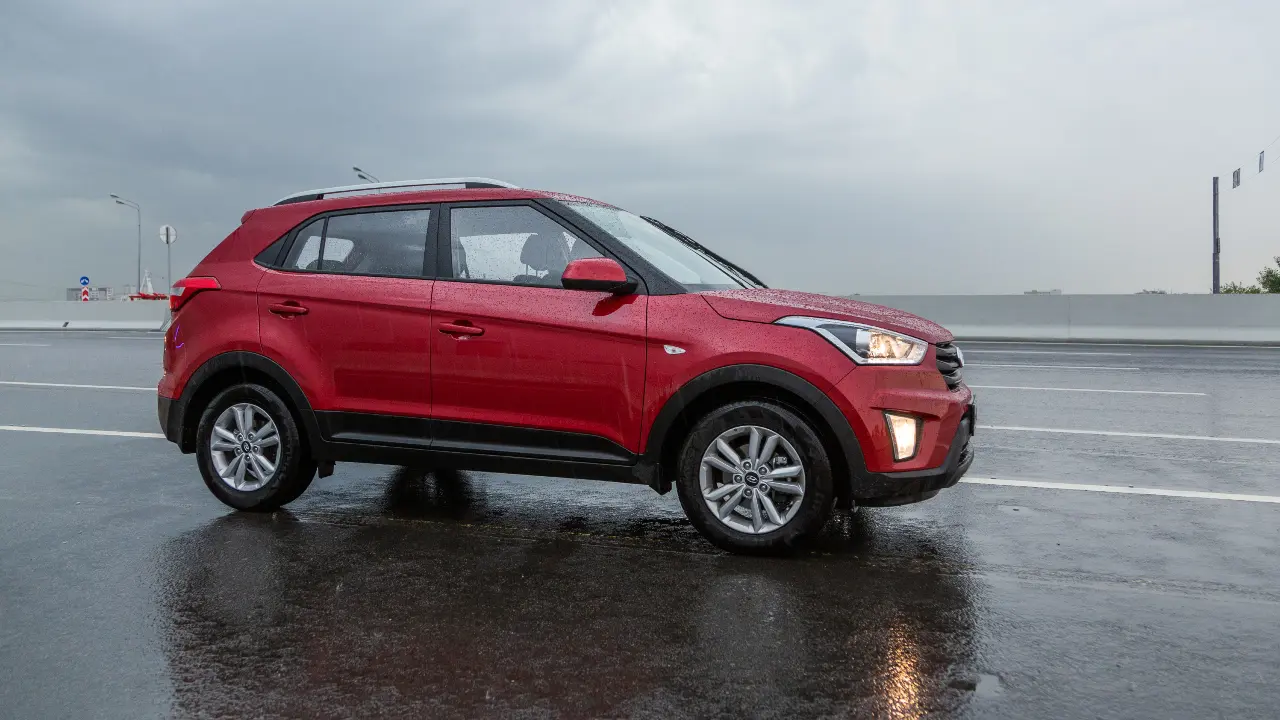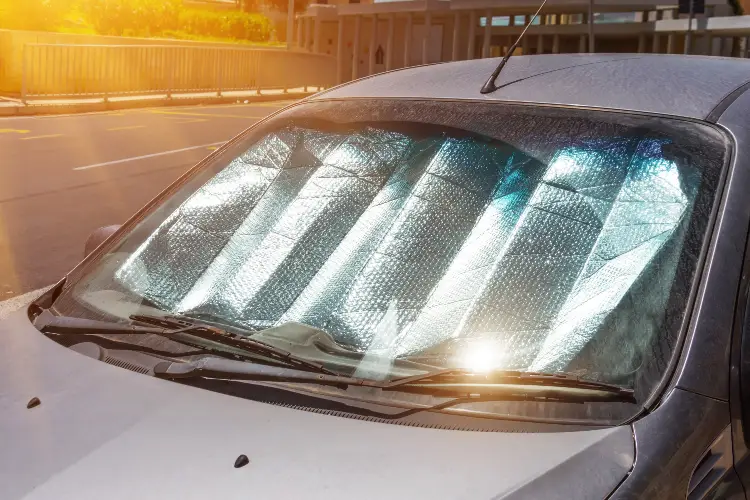The great British weather is probably best summed up as grey and cloudy with a large chance of rain, but we do occasionally get some extreme weather on both sides of the spectrum – everything from relentless snowfall to scorching sun. The changing of the seasons can play havoc with your car and no matter what the weather is doing, you should take steps to protect your vehicle to avoid potential issues.
How To Protect Your Car From The Rain
A car is designed to withstand heavy rain but that does not make it infallible, so you should still take care during a downpour.
Wax Your Car
The best preventative measure is waxing your car, as this acts as a barrier and stops the rain from hitting the paint directly. Rain is also rarely pure water as it normally contains debris and dirt, and a waxed surface will be much easier to clean. As you drive along wet roads, your wheels will also throw up spray from the street, which will hit the underside of your car. Therefore, it’s recommended that you clean your car regularly and re-treat it with high-quality products for the best protection.
Close Your Sunroof And Windows Properly
This may sound obvious, but the outside of your car can cope better with water than the interior. The seals on windows and sunroofs are designed to keep the inside dry, so be sure to close them properly. A wet driver's seat is not only inconvenient but can damage the upholstery and cause a damp smell for weeks afterwards. If you notice any wear and tear to the seals, get them repaired as a priority.
How To Protect Your Car From Snow And Ice
It’s likely that heavy snow might prevent you from driving for a couple of days during the winter months. Leaving your car under a pile of fallen snow certainly isn’t the best for it. If you do venture onto the roads, you also want to be confident that the vehicle performs well and doesn’t let you down. If there is snowfall overnight, a windscreen cover is your best line of defence. Not only does it save time when you need to get going in the morning, but it helps protect the car’s glass from scratching. We have a list of the best cars for driving in snow here if you spend a lot of time on the road during winter.
Check Your Tyres
Cold weather can cause tyre pressures to decrease, which will lead to the car not handling as it should. It’s a good idea to make regular checks on your tyre pressure and always keep a pump within easy reach. Some people choose to change to winter or snow tyres, as these are designed to increase traction and make the vehicle perform better on icy roads, but there is rarely enough snowfall to warrant them for most areas in the UK. However, it may be a good idea in Scotland or other areas with high lands where blizzards and heavy snow are more prevalent.
Carry Out Windscreen Care
However tempting it may seem to pour hot water onto your frozen-up windscreen to clear it instantly, you could actually cause your windscreen to crack from the thermal shock of going from icy to warm too fast. If you remember your windscreen cover, all you need to do is remove it in the morning, pop your heated windscreen on (if you have one) and you will be good to go. Be sure to remedy all cracks in the windscreen quickly if any should appear, as the cold weather can force water into them, which then freezes and expands as ice and could cause your screen to shatter. If you need to scrape off snow or ice, use a proper plastic scraper (not a credit card!). It’s illegal to drive with your vision obscured – sometimes called ‘portholing’, when people drive along with a tiny patch of the windscreen cleared – or with a huge, thick layer of snow on the roof, as it can fall off when your car is moving and cause issues for you and other motorists.
Optimise Battery Health
The cold can also play havoc with car batteries, and especially electric car batteries. EVs use battery power to propel the car and if you haven’t been looking after your battery or it is coming to the end of its life, the cold weather could make operating the car more difficult. It’s also worth regularly starting the car even if you cannot drive in the snow, which will help keep it working properly.
Use The Correct Wiper Fluid
Another good tip for winterproofing your vehicle is to use the proper wash-wipe fluid for the season. Winter washer fluid includes an element of antifreeze, so it won’t solidify in the coolant reservoir like pure water would. Using winter wash fluid will leave you with a crystal-clear view of the road ahead at all times.
While you’re checking fluid levels, be sure to also check your oil. It gets thicker when the temperature plummets, but you can combat this with thinner engine oil during the winter months.
How To Protect Your Car From The Sun
So, what about between June and September, when we have extreme heat to contend with? Admittedly it doesn’t happen much in the UK (apart from that roasting heatwave in July 2022, of course), but it is still essential to take care of your car during summer.
Park In The Shade
Returning to a car parked in the sun can be an uncomfortable experience, and it can cause issues with fading upholstery and damaged external paint. There are also more plants around that shed pollen in summer, which can permanently stain your car’s paintwork if the pollen is not cleaned off straight away.
Protect Your Windscreen
If you can’t get your car into the shade when you park, then consider a windscreen shade as an alternative. There are also child side blinds available for little ones. Both measures help with the internal temperature of the car and prevent the sun damaging the interior. Even with air conditioning turned on, you should allow air to flow through your vehicle by opening the windows, which will in turn help to remove the hot air. Fresh air is better for passengers and pets than air-conditioned and recycled air, so try and alternate the 2 in order to find the perfect cabin temperature. Even with sun blinds and open windows, a stationary car will still get hot, so don’t be tempted to leave children or pets in parked cars when the temperatures are soaring.
Prepare Your Cooling System
You should also be checking your car cooling system as part of your regular maintenance schedule. Coolant levels can deplete over time for a number of reasons and you need to ensure these levels are checked by a local garage if you are not confident in replacing the coolant yourself. Air conditioning will also need a re-gas periodically and you don’t want to leave this till the height of summer. You will find that most specialists are booked up because motorists tend to forget until they needed air conditioning to combat the heat.
Utilise Your Garage
If you have a garage, it’s wise to use it as regularly as possible, as this will help to prolong the life of the vehicle. Lots of people choose to leave their car on the drive and use the garage for storage. If you don’t have a garage, you can get full car covers that will help protect your parked vehicle when there is extreme weather to contend with. If you get into a maintenance routine, it will soon become second nature and you will be able to rely on your car no matter what the weather is doing.
Head on over to our car leasing page to find your new car to take on the elements, from car brands including Tesla, Ford and Jaguar.






